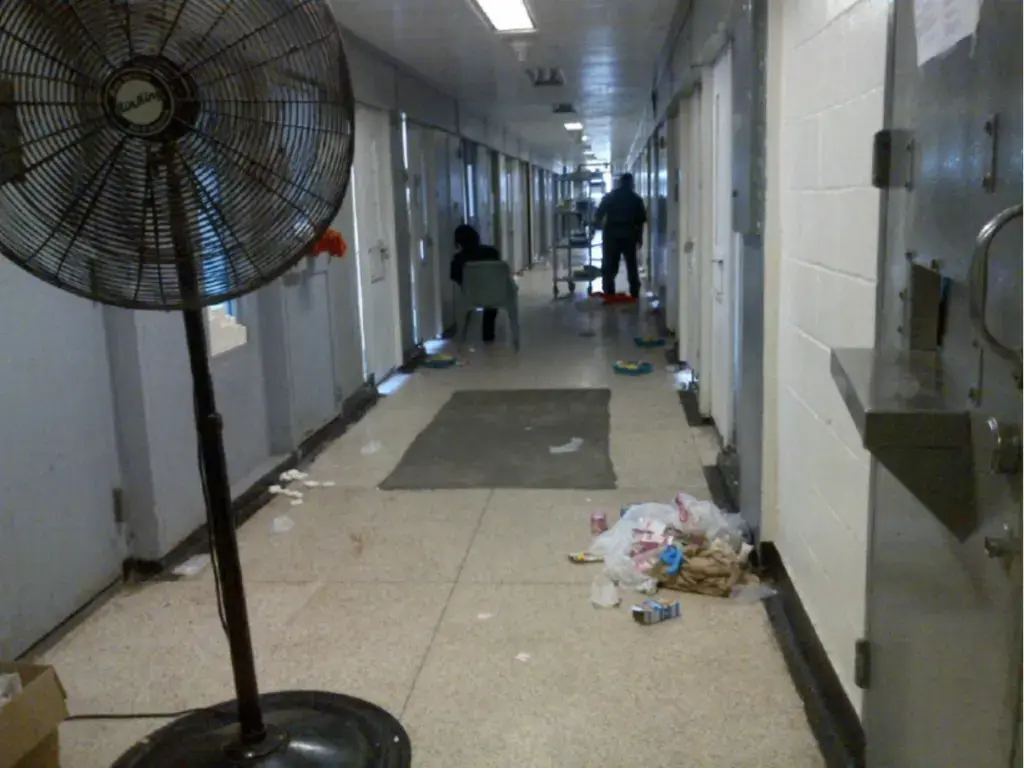Every cell you’d go to, someone would be begging you for toilet paper or for water. These are “wet cells” with a sink and toilet, but the person inside can’t flush the toilet or open the faucet to get drinking water themselves; someone outside the cell has to press a button to do it. So as a fellow incarcerated person, who’d been in similar cells myself at previous facilities, I’d usually spend the next two hours walking back and forth filling up people’s cups from the mop sink, because it’s midday and there hasn’t been officer around since 5 pm yesterday.
You can land in these cells for months for talking back to an officer, or being in a fight even if you were just defending yourself. If you have a mental health episode, or report that you were sexually assaulted, they might stick you in there for a year. Purportedly for your safety, but really to shut you up. These inequities are wielded most harshly against trans women of color like myself.
There should be an external civilian review board that audits the process, with members who rotate out every six or 12 months and are paid for their time. There should really be multiple boards—one for general housing conditions, one for use of force, one for mental health care, etc.

Yeah they do.
But everything we do in law and order seems to be based around profit and, most importantly, cruelty. I’m not optimistic that any major change to the penal system will happen in my lifetime.

I definitely get where you’re coming from. But this is a way forward when big changes are otherwise impossible. Civilian review boards are a concrete suggestion that can be modeled on similar programs elsewhere in law enforcement. They are a relatively minor change and require little infrastructure beyond a conference room, and can have an outsized impact.


